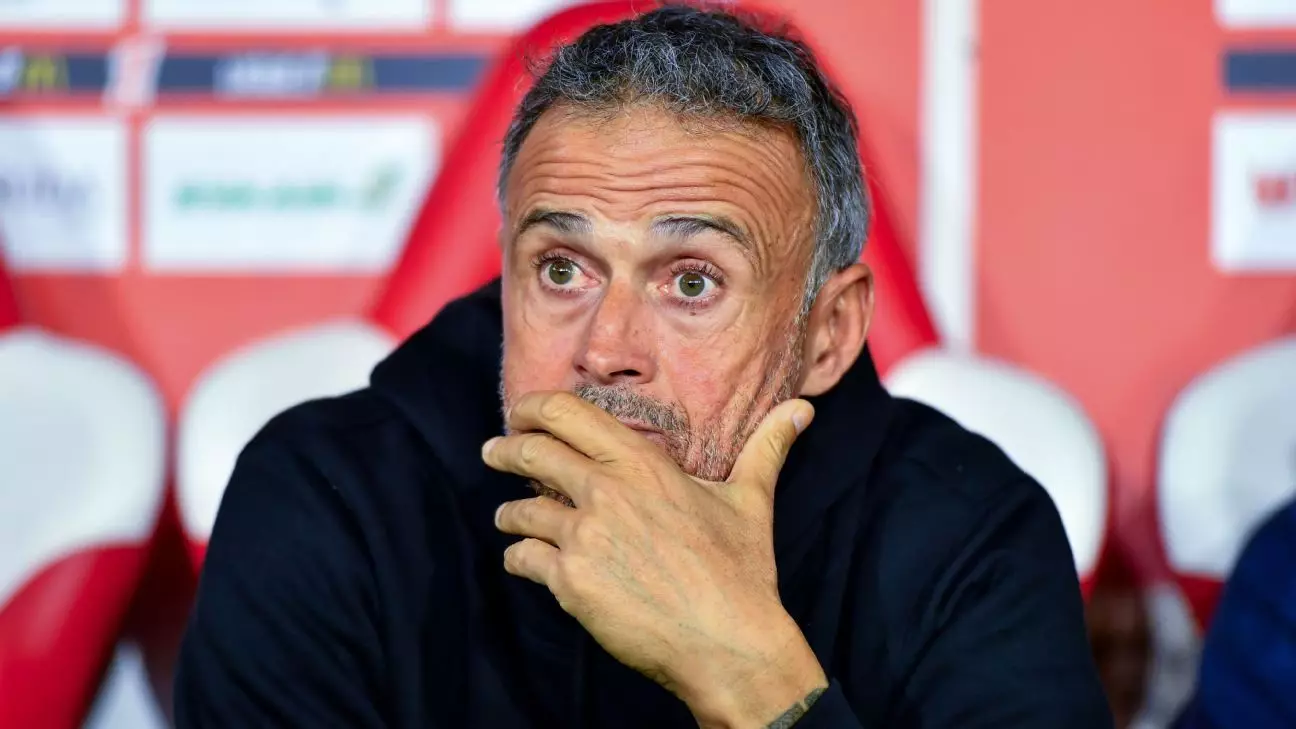Luis Enrique, the head coach of Paris Saint-Germain (PSG), recently became the subject of significant discussion due to his candid remarks regarding the pressures of engaging with the media. In an era where football coaches are often scrutinized not just for their tactical acumen but also for their public relations skills, Enrique’s willingness to accept a hefty pay cut to avoid press conferences encapsulates a growing frustration among managers. Notably, he expressed that he finds joy in speaking with journalists, but hinted at a certain level of exhaustion regarding the repetitive nature of media inquiries, particularly concerning superstars like Kylian Mbappé, who has transitioned to Real Madrid.
Tension in Press Conferences
During a press conference prior to PSG’s Ligue 1 match against Rennes, Enrique revealed his deep frustration with the recurring questions about Mbappé, ultimately showcasing the intense scrutiny that comes with coaching a high-profile team. His reaction to inquiries about the forward’s life in Madrid was particularly revealing. It betrayed an exasperation with the journalistic focus on what he views as bygone narratives instead of the current state of his squad. “Do you live here [in Paris] or what?” he retorted, suggesting that he wants to shift the objective of discussions from past players to present tactics and team dynamics.
This sentiment resonates with many coaches who often feel their efforts on the pitch are overshadowed by off-field narratives. The pressure to constantly provide updates and comments on former player transitions can overshadow discussions about team tactics and current player performance. Enrique’s emotional response is indicative of a larger trend in football; coaches are often caught in a cycle of having to defend their strategies while being incessantly revisited by the questions of former star players.
The Irony of Media Relations
Enrique’s humorous yet pointed remark about taking a pay cut to dodge press obligations underlines an ironic truth—the very contracts that offer job security for coaches simultaneously impose shackles on their freedom of expression. While the media plays an essential role in connecting fans with the sport, there comes a tipping point where this relationship becomes burdensome. Enrique’s candid thoughts signal a need for a reevaluation of how teams engage with their coaches’ media responsibilities and the impact that may have on their mental well-being.
Navigating the duality of being a football manager—performing in front of fans while managing the unpredictability of media interactions—can be taxing. As clubs prioritize winning to maintain their commercial interests, the pressures on coaches amplify. Enrique’s reflections could spur a broader conversation in the football community about how clubs structure media engagements and the toll it takes on coaches’ mental health.
Luis Enrique’s comments about the pressures of media interaction serve as a crucial reminder of the challenges facing contemporary football managers. This situation elucidates the need for clubs to recognize the well-being of their coaching staff, potentially advocating for less strenuous media expectations that allow for a focus on performance rather than consistently revisiting the past. As football evolves, so too must the relationships between players, clubs, and the media to ensure a healthier environment for all stakeholders involved.

